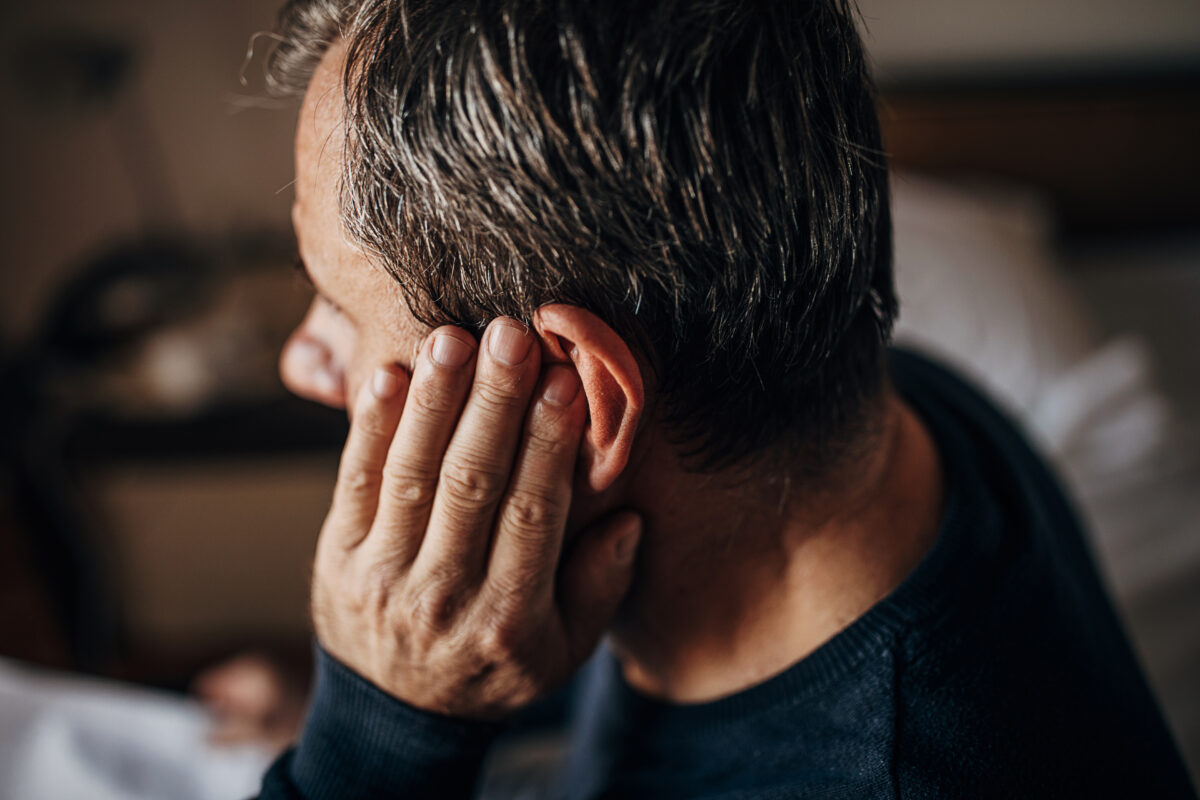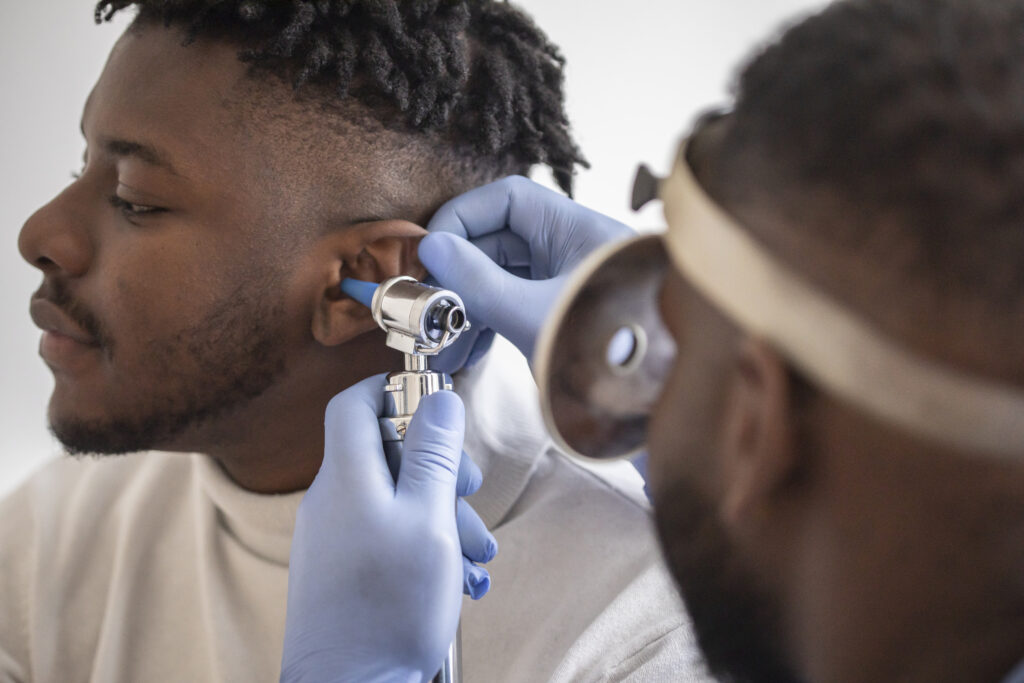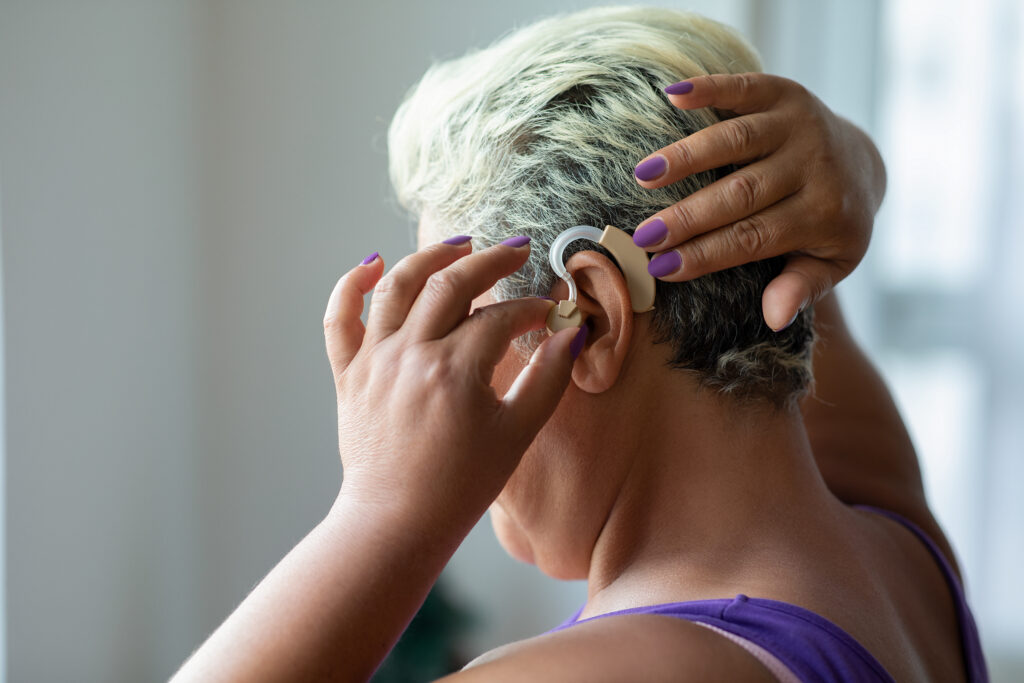Ear Conditions

Augusta Health otolaryngologists, also known as ENT doctors, care for people with a variety of ear conditions, offering treatments that help achieve the best possible quality of life. Some of the most common conditions we treat are included in this information sheet. If you have any questions about your ears and hearing, we are here to answer them.
Ear conditions and treatments
Ear infections
Ear infections, which are called chronic when they happen frequently, can be painful and can affect hearing temporarily. When chronic and acute, or severe, ear infections that are left untreated can damage structures within the ear and cause permanent hearing loss. Most often, these infections occur in the middle of the ear, which is located just behind the ear drum. An infection in the middle ear is also known as otitis media.
These types of infections are not contagious. They tend to happen more often in winter months because they are often associated with a cold or upper respiratory infection. Allergies, sinusitis (sinus infection) and injury to the ear may also cause an ear infection.
Symptoms of ear infection include:
- Ear pain
- Loss of balance
- Temporary hearing difficulties (sounds may seem muffled)
- Swelling in the middle ear
- Fluid in the middle ear
A young child with an ear infection may also experience:
- Irritability
- Difficulty sleeping
- Tugging on the ear
- Fever

If you or your child are experiencing these symptoms, we encourage you to make an appointment with one of our ENT specialists. During your visit, you can expect your physician to ask you questions about symptoms and to perform an examination of the ear or ears. The ENT will then talk with you about your condition and discuss treatment options with you.
Our ENT specialists often recommend ear tubes for young children who experience chronic ear infections that become difficult to treat successfully with antibiotics. Ear tubes help drain fluid from the ears, which can prevent permanent hearing loss. If ear tubes are recommended for your child, your ENT physician will discuss this procedure with you in detail. In the meantime, we invite you to watch this video, which may help answer some of your questions.
Ear wax accumulation
The waxy substance the ear produces, called cerumen, is designed to trap dust, bacteria and other small materials to prevent them from entering the ear and causing damage. This substance also protects the delicate and fragile skin in the ear canal when water enters the ear. Most of the time, ear wax travels from the inner part of the ear canal to the entrance of the ear. Jaw movement, including eating and talking, helps remove ear wax naturally.
Sometimes, however, ear wax accumulates in the ear and creates a blockage, which is called
cerumen impaction. Symptoms of this condition include:
- Irritation or itchiness
- Ear pain
- Ear ringing
- Dizziness
- Difficulty hearing
Some people are more prone to wax build-up in their ears. For example, people who wear hearings aids, or use earplugs or earbuds, can be prone to ear wax buildup. In some people, genetics play a role in excess ear wax buildup.
Our specialists can determine the presence of a blockage during an examination and can remove any waxy buildup using special instruments. Usually, this procedure takes only a few minutes to complete, and the results are immediate.
Tinnitus

Tinnitus is commonly described as a constant ringing in the ears. Some people hear other types of sounds, such as roaring or buzzing. Tinnitus is common, and it’s estimated that up to 25% of adults experience this condition. Children can also have tinnitus. For children and adults, tinnitus may improve or even go away over time, but in some cases, it worsens with time. When tinnitus lasts for three months or longer, it is considered chronic.
The causes of tinnitus are unclear, but most people who have it also have some degree of hearing loss. Tinnitus is rarely associated with a serious medical problem and is usually not severe enough to interfere with daily life. However, some people find that it affects their mood and their ability to sleep or concentrate. In severe cases, tinnitus can lead to anxiety or depression.
Hearing Loss
The ear is a resilient but delicate organ. A number of factors can contribute to hearing loss in children and adults, including genetic conditions, as well as injury and illness. Generally, hearing loss is most often caused by:
- Aging; over time, the inner ear changes
- Loud noise, which can damage the cells of the inner ear
- Impacted ear wax
- Trauma to the ear or head
- Viral infections and other conditions that affect the ear
If you are concerned about your ability to hear or have experienced noticeable hearing loss, our ENT specialists can help determine the cause of the loss and can recommend a treatment that will help you achieve the best quality of life.

